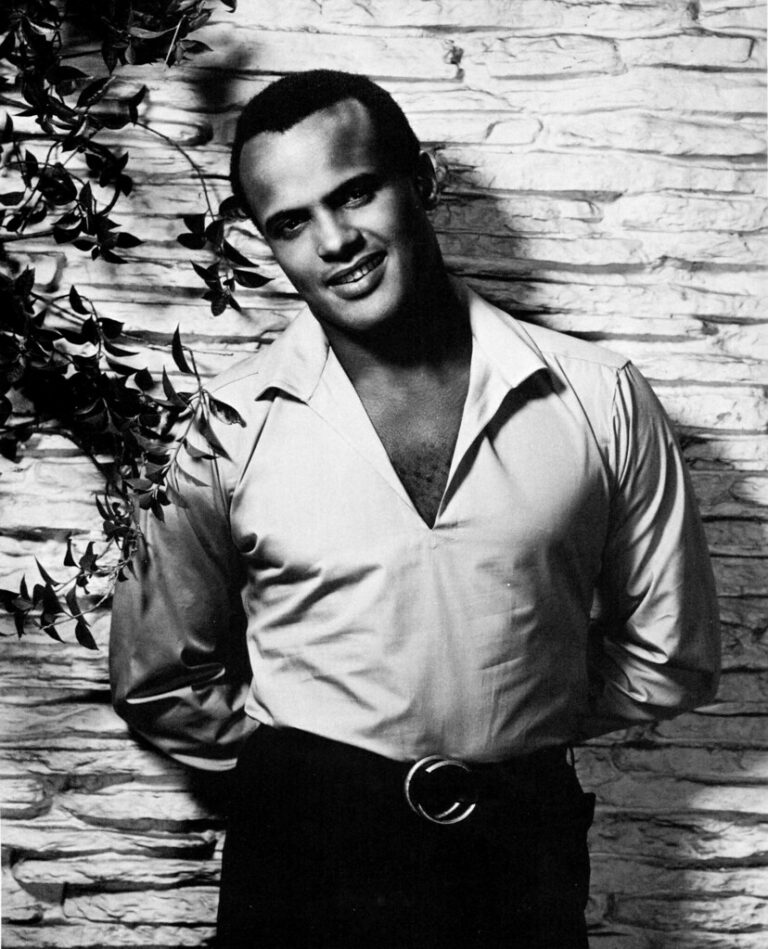When it comes to Harry Belafonte, the legacy left behind is like no other.
For more than seven decades, the multi-hyphenate New Yorker found his way into our social consciousness. He both sang and spoke with purpose, and not once did he tone down his personality for such. His music was timeless, catchy, and evocative. He had an eagerness to educate, to be educated, and to expand on what an education could be for BIPOC in America. His innate sense of self allowed him to be a leader during the Civil Rights Moment, a figure of Black excellence, and the pinnacle of Jamaican spirit. Becoming an EGOT in Hollywood was just the icing on the cake of his hard-earned life.
Harry Belafonte was a trailblazer artistically. The sights and sounds of Caribbean music and World music became integrated into pop culture in a new way, and as he released hit after hit in the fifties, his career as a singer-songwriter became accompanied by television spots (a frequent Ed Sullivan Show performer) and movie roles (Carmen Jones won two Golden Globes). The very first record by a soloist to sell one million copies was, in fact, his. Calypso, released in 1956, had “Day-O” and “Star-O” as part of the 11-song tracklist – three co-written by the vocalist himself. When the star was passionate about something and he put it his hand in the mix, it was bound to go far. This is something he proved time and time again; the first platinum record by a single artist being his and the soundtrack inclusion in everything from Beetlejuice and I Love Lucy are just two examples.
More than an entertainer, though, Belafonte advocated diligently for social justice on a widespread, global scale until his passing. He was a UNICEF Goodwill Ambassador beginning in 1987, and long before that he was a cultural advisor to the Peace Corps. as named by John F. Kennedy. His partnership both personally and professionally with Martin Luther King Jr. during the height of the Civil Rights Movement is well documented. He worked gently but diligently to desegregate schools and public places throughout the country, notably supporting the Student Nonviolent Coordinating Committee in 1964 by financing an event alongside the late, great actor that was Sidney Poitier with $60,000 (about $580,000 today). This includes media, as well, sharing interracial stories and moments without fear, including the romantic aspect of his film Island In the Sun and his national performance along the effervescent singer and host Petula Clark (together refusing to reshoot a scene where she, a white woman, touches him, a Black man).
A musician at heart, he lent his talents to “We Are the World” alongside Michael Jackson, Lionel Richie, and more as the USA for Africa supergroup in the eighties. Belafonte followed that with a LiveAID performance the next year. HIV/AIDS campaigns that he supported took him to South Africa and beyond and brought him prestigious awards for his humanitarianism; same with prostate cancer, which he was a survivor of. Organizations in that realm of well-being, safety, and awareness became part of the “Matilda” singer’s activism. Racial injustice, censorship, healthcare initiatives, foreign policy, equality, gun control, even childhood incarceration were cornerstones to what Belafonte felt strongly in learning about, exploring, and helping publicly.
Harry Belafonte deserves to be recognized for all of this and more. To live 96 years and do all that he did with such kindness, eloquence, and humility puts him on another level. Still, he was a father and a friend as much as he was a critically-acclaimed performer and an award-winning activist. His smile shone on-stage, on-screen, and off. He married peace, an idea to sing about, with peace, an ideology to act on, in ways few have replicated (but many try to emulate). We thank him for carving out that path, striking that balance, and using his voice in more ways than we could name.
Rest in that peace and that power in which you worked so hard for, Harry Belafonte. The world is grateful for you.



